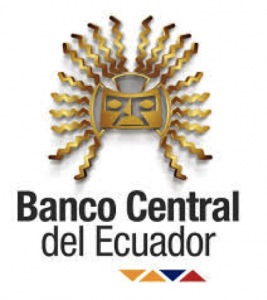Ecuador’s Central Bank has embarked on an ambitious course to launch an affordable and widely available mobile payment scheme. In fact, it will be the national wallet. With some uncertainty, it appears that Ecuador’s initiative may be the second central bank effort to enter this space. Jordan’s central bank has launched “JoMoPay”, but for those of us who don’t read Arabic, details on the initiative are less than sparse.
But as I return from Quito and the M2Money Andean conference, there are details to share on Ecuador’s effort. The central bank will be both the owner and the operator of the scheme. They chose a proven mobile payment platform that will lend both capability and experience to the new initiative. The vision includes building out an ecosystem that includes P2P, top-up, B2B, cash in and cash out, in-store purchases, and electronic receipts. The plan is to link the mobile payment platform with the banking platform so that mobile accounts can receive funds from and send funds to bank accounts.
The central bank doesn’t have a retail presence so it is inviting commercial entities with large networks to become “macro agents” in the distribution network. They will receive a fee for specific transaction activities. We’re likely to see large retail chains sign on as this will encourage customers to visit their stores and lower the retailer’s cost of payment handling especially with respect to cash.
Some readers will note that I have mentioned neither the banks or the telcos so far. Most mobile payment schemes have either a telco or a bank, sometimes as partners, as the scheme owners. In Ecuador, however, mobile payments will be carrier agnostic. The central bank is purchasing airtime from the three networks in order to process the USSD-based text messages employed by the mobile payment platform. The smaller cooperative banks seem to be open to acting in the macro agent role but I’m not aware that any bank has signed on.
There isn’t a great deal of opportunity for either the mobile operators or banks in the new scheme. The carriers do not have a large retail footprint of their own, relying on affiliate agent networks to sell their air-time plans. And while the banks do have branches, the revenue and the cross-selling opportunities are barebones. Regulations also prohibit any other party from issuing e-money.
What’s truly impressive here is the cost structure for most payments. Sending a transfer below $10 will cost $0.02, and a transfer up to $50 only costs $0.04 (all figures are USD, the official currency in Ecuador). And as the only wallet in the country, all mobile payments are interoperable.
This is pretty heady stuff. You’ve got national regulatory support for a mobile payment initiative that is truly affordable – even low income segments should feel comfortable paying dos centavos to make a payment that might otherwise have been made in cash. It should be easy to use and, because it’s interoperable, ubiquity should be reachable.
These are early days, of course. The new wallet is just emerging from pilot testing. Perhaps the real test here is whether or not participation by the telcos or banks is a necessary ingredient for a successful mobile payment implementation. Will this be a recipe for lackluster use? Or might the top down, single source approach be a viable path to affordable mobile payments? Is a program with such low fees sustainable? For sure, Glenbrook will be following how this program develops. Fascinating stuff!
This post was written by Glenbrook’s Elizabeth McQuerry.


